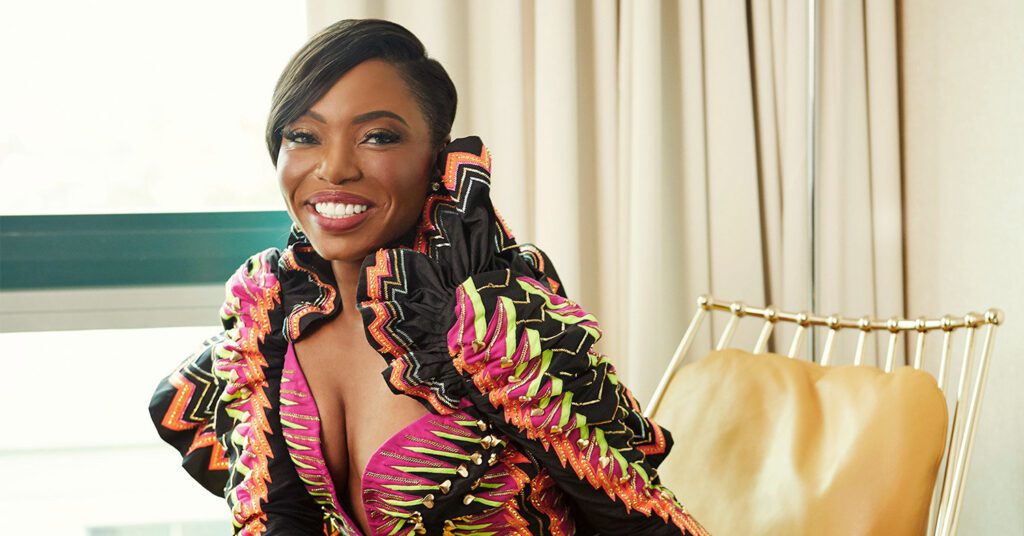We’ve been painting our faces for thousands of years. In 4,000 BC, in Ancient Egypt, both men and women lined their eyes with kohl to create a dramatic cat-eyed look. Thousands of years later, in Elizabethan England, people would frequently powder their faces with a mixture of white lead and vinegar and rouge their cheeks. And in 18th-century France, both genders of the upper classes would draw on beauty marks. Today, the U.S. is home to the world’s largest beauty market, and it’s becoming ever more focused on inclusivity and diversity. But as the story so often goes, the unsung pioneers of this enormous industry—who paved the way for progress today—were Black women.
The pioneering role of Black women in beauty
More than 140 years ago, in Massac County, Illinois, Annie Turnbo Malone was born. In stark contrast to the lives of her parents, who were formerly enslaved, she grew up to be educated. She was passionate about science, business, and product development, and became a beauty inventor and pioneer—not an easy feat for a Black woman in a racially segregated, patriarchal society.
Against the odds, Malone eventually became one of the first Black women to gain millionaire status. In 1900, she invented her first signature product, a scalp treatment called Wonderful Hair Grower. One product grew into multiple hair and beauty offerings, and The Poro Company was born. She used her money and influence to educate others, starting a group of cosmetology schools called Poro Colleges (by the 1950s, there were 32 in operation).
To this day, Malone’s legacy lives on. She inspired Madam C.J. Walker, another extremely successful Black hair and beauty entrepreneur, though the two ended up being rivals. Walker created another, extremely similar, hair growth treatment called Madam C. J. Walker’s Wonderful Hair Grower. Walker’s story is more well known than Malone’s now (especially since it was televised by Netflix with Self Made, starring Octavia Spencer).
Malone and Walker weren’t alone. Their Texas-born contemporary, Nobia Franklin, founded the Franklin School of Beauty Culture in Houston in 1916, after a successful home-grown salon venture. The school remains open to this day.
Thriving in a system built against them
Malone, Walker, and Franklin prospered in a system that was built against them, paving the way for the many Black women entrepreneurs thriving in the beauty industry today. “Black women were challenging racism and sexism,” Bernadette Pruitt, a historian at Sam Houston State University, told Chron. “They’re not supposed to be entrepreneurs, they’re not supposed to be creating businesses, and they’re certainly not supposed to create businesses that are still open 100 years later.”
Things changed throughout the 20th century, but not enough. Whitewashing was still the standard in beauty, with pale skin the go-to for beauty and fashion advertisements and campaigns. Black women were still battling against the norm.
In terms of full diversity in the beauty industry, we’re not there yet by any means. But progress is being made. Now, there is more pressure on mainstream brands to offer foundations, creams, and concealers for every skin tone. This is largely thanks to Rihanna, who changed the game when she launched Fenty Beauty in 2017. The brand’s foundation offered an ultra-inclusive 40 shades, prompting some of the industry’s biggest names to expand their ranges. Black women are also more empowered than ever to start their own beauty brands, offering products designed specifically for people of all shades.
Here are some of the most noteworthy Black-owned beauty brands on the market right now. Plus, they’re all vegan-friendly and cruelty-free. The slideshow is far from exhaustive, so we encourage you to seek out new faves both in your area and online.
LIVEKINDLY is here to help you navigate the growing marketplace of sustainable products that promote a kinder planet. All of our selections are curated by the editorial team. If you buy something we link to on our site, LIVEKINDLY may earn a commission.


